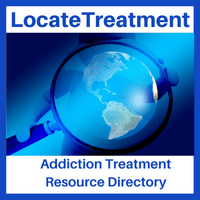Legislative Alert: Tennessee HB 2068: Substance Abuse Marketing
May 17, 2018
Tennessee recently passed HB 2068, designed "[t]o protect the health, safety, and welfare of [a] vulnerable population," consumers of substance abuse treatment, by prohibiting certain marketing practices by operators of alcohol and drug treatment facilities ("ADTF") or service providers of alcohol and drug services. SUBSTANCE ABUSE—TREATMENT—MARKETS AND MARKETING, 2018 Tennessee Laws Pub. Ch. 855 (H.B. 2068). The law will take effect July 1, 2018.
Under new provisions added to Tennessee Code Annotated, Title 33, Chapter 2, Part 4, the following marketing-related practices are specifically prohibited:
- Making a materially false or misleading statement or providing materially false or misleading information about the provider's or operator's identity, products, goods, services, or geographical locations in its marketing, advertising materials, or media or on its website;
- Including on its website false information or electronic links, coding, or activation that provides false information or that surreptitiously directs the reader to another website;
- Soliciting, receiving, or making an attempt to solicit or receive a commission, benefit, rebate, kickback, or bribe, directly or indirectly, in cash or in kind, or engaging or making an attempt to engage in a split-fee arrangement in return for a referral or an acceptance or acknowledgement of treatment from a service provider of alcohol and drug services or ADTF; or
- Entering into a contract with a marketing provider who agrees to generate referrals or leads for the placement of patients with a service provider of alcohol and drug services or in an ADTF through a call center or a web-based presence. This provision shall not apply if the service provider of alcohol and drug services or the operator of the ADTF discloses to the prospective patient, so that the patient can make an informed healthcare decision, in clear and concise language and instructions that allow the prospective patient to easily determine whether the marketing provider represents specific service providers or recovery residences that pay a fee to the marketing provider, and the identity of such service providers of alcohol and drug services or ADTF.
In addition, under new amendments to the Tennessee Code Annotated, Title 63 and Title 68, Chapter 1, Part 1, the new law prohibits a broad range of activities related to kickbacks for referring patients to or from licensed facilities (including offering to pay, soliciting, receiving, or participating in any way in a commission, benefit, rebate, kickback, or bribe, directly or indirectly, in cash or in kind, or engaging in any split-fee arrangement, in any form whatsoever, in return for referring a patient or patronage to or from a licensee or facility licensed by the state).
Punishment for both marketing and kickback-related violations included civil penalties and the suspension or revocation of the person or entity’s license.
For more information on the current laws governing treatment programs and sober living facilities in Tennessee, please visit our Frequently Asked Questions for the state.

A national membership association that provides education and advocacy for those in the behavioral health and addiction treatment industries.
We are the leading and unifying voice of addiction-focused treatment programs.



